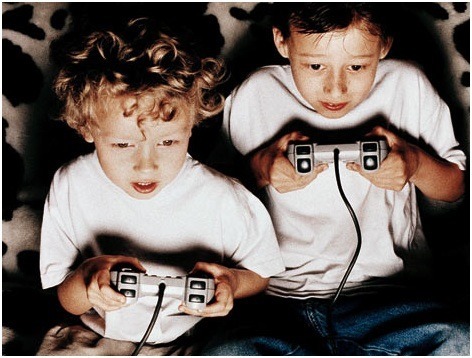With the increase in the availability of laptops, game consoles and handheld devices it is becoming very common for children to own personal electronic devices. This widespread access of such devices is giving birth to this new age “phenomena called the video game addiction“, among both children and young adults. Long exposure to such video games often create disinterest in any other social activity including eating and sleeping and in some cases it also leads to depression thereby making the child socially adverse. You can definitely put an end to this addiction (through gradual process) by curbing the extent of exposure your child normally gets to such devices.
However, you should remember that trying to put an abrupt end to the regular habit might create psychological problem and there are also chances that your child might alienate himself/herself from you completely. Thus it is better to take cautious steps in order to ease your child out from this nasty addiction. Starting from taking the screen out from your child’s bedroom to making him/her earn the time to play video games, you can actually play a participatory role to manage the habits of your child. These are the few tips that will help you to manage your child’s video game habits.
Tips to Manage Your Child’s Video Game Habits
Take all screens out from your Child’s Bedroom
It is important that you don’t allow your child to have a computer or an even a television in the bedroom. If your child is already having one, it is wise to remove the same from his/her bedroom as it is important that you actually keep an eye on your child while he/she is exposed to the screen. It not only makes him/her conscious but it also provides you the control and a chance to get involved with whatever he/she is watching or playing.
Make Your Child Earn the Game Time
It is essential that you accept the fact to your child that video games are interesting and for that reason he/she should earn the time to play by doing his/her personal studies and also household chores. By making them do household chores in order to gain game time will ensure that the child will learn to prioritize real life over video games and also he/she will learn the varied time management strategies. Make sure that you get involved while he/she is mowing the lawn or doing the dishes and in that way you can project these regular activities as fun things to do.
Try to Develop Your Child’s Social Life
Video games often provide respite to the children for not having to deal with real life situations and people around them. Social activities like giving him/her the responsibility to arrange a picnic or arrange a party will provide them the confidence and an opportunity to get involved in the social activities, outside of video games. You should encourage your child to participate in the small decision making process as in where to eat-out next Saturday or which amusement park to travel the next weekend. These responsibilities will help him/her to get more involved with the regular social activities and not get buried into video games.
Video Games Shouldn’t be the Primary Reward System
While you are making your child earn the game time, make sure sometimes you alter the rewards and should ideally not focus only on the giving him/her a chance to indulge in the virtual world. Sometimes when he/she does a good job in the household chores like arranging the books or dusting the sofa, make sure you offer your child different rewards like making his favorite dinner or promising the movie he/she wanted to see for a long time. In this way your child will gradually think of alternate options for rewards will come up with suggestions. This will help you to interact more with your child more directly and you will get to learn about his/her preferences.
It is important to remember that child prefers the video games over real life mostly due to the extent of entertainment it offers in terms of graphic and his/her virtual involvement. So it is vital on your part that you don’t become the villain by forcing issues on to your child as otherwise he/she will try to deceive and lie to you and eventually you will lose control over your child. It is unwise to cut the video game ties entirely at one go and it is also important at the same time that both of the parents equally participate get involved in the process as otherwise your child might project negative feelings towards one of you while considering that the other person has consent to him/her playing the game.
Read More: Can Video Games Really Help Your Child?













